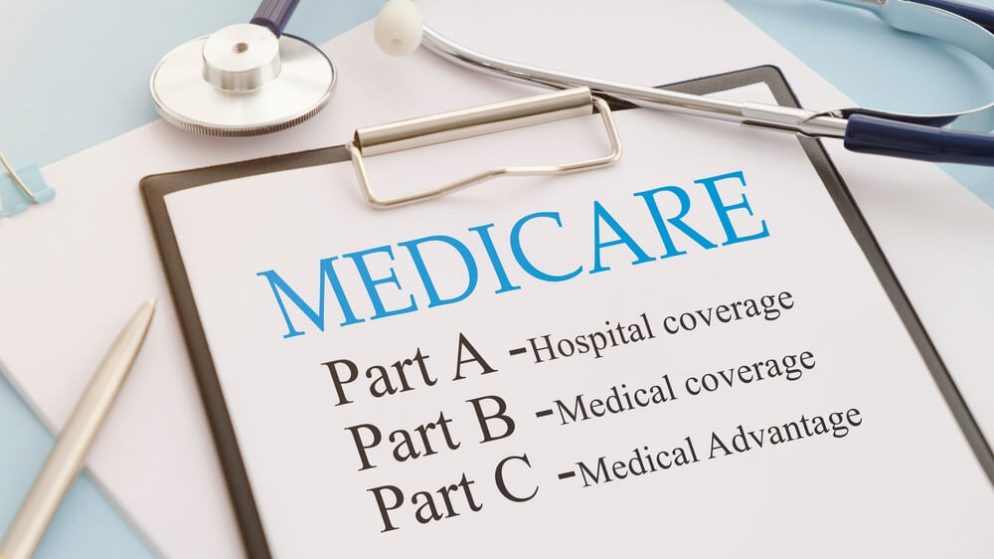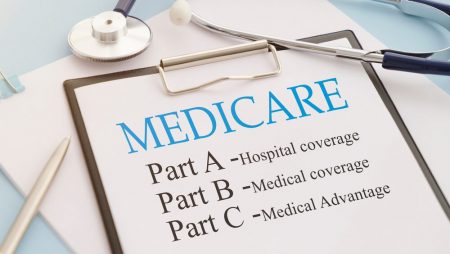



Get new exclusive access to healthcare business reports & breaking news




Federal audits released late November 2022 revealed many overcharges and other errors in payments to Medicare Advantage health plans, some of those overbilling the government more than $1,000 per patient a year on average.
Summaries of the 90 audits, which examined billings from 2011 through 2013 and are the most recent reviews completed, were obtained exclusively by Kaiser Health News through a three-year Freedom of Information Act lawsuit, settled in late September.
In 2022, more than 28 million people are enrolled in a Medicare Advantage plan, accounting for nearly half or 48 percent of the eligible Medicare population, and $427 billion (or 55%) of total federal Medicare spending (net of premiums). The average Medicare beneficiary in 2022 has access to 39 Medicare Advantage plans, the largest number of options available in more than a decade.
A review of the audits reveals that health insurers that issue plans of Medicare Advantage, a fast-growing alternative to original Medicare, run primarily by major insurance companies, have repeatedly tried to sidestep regulations requiring them to document medical conditions the government paid them to treat.
Recent government’s audits uncovered about $12 million in net overpayments for the care of 18,090 patients sampled, though the actual losses to taxpayers are likely much higher.
This is not the first similar occurrence. Back in 2019, before the coronavirus pandemic hit, an audit revealed that Illinois owed the federal government $4 million for failing to seek rebates from drug companies for medications prescribed through the state’s Medicaid program.
The audit by the U.S. Department of Health and Human Office of Inspector General (OIG) found that Illinois did not always comply with federal Medicaid requirements for invoicing drug manufacturers for rebates for physician-administered drugs.
Now, officials at the Centers for Medicare & Medicaid Services have said they intend to extrapolate the payment error rates from those samples across the total membership of each plan — and recoup an estimated $650 million from insurers as a result.
But after nearly a decade, that has yet to happen. CMS was set to unveil a final extrapolation rule Nov. 1 but that decision was put off until February 2023.
Ted Doolittle, now health advocate for the state of Connecticut and a former deputy director of CMS’ Center for Program Integrity, overseer of Medicare’s efforts to fight fraud and billing abuse, said the agency did not succeed in holding Medicare Advantage plans accountable. “I think CMS fell down on the job on this,” said Doolittle.
In an email response to written questions posed by KHN, Dara Corrigan, a CMS deputy administrator, said the agency hasn’t told health plans how much they owe because the calculations “have not been finalized.”
Corrigan did not say when the agency would complete its work. “We have a fiduciary and statutory duty to address improper payments in all of our programs,” she concluded.
The 90 audits are the only ones CMS has finished over the past decade, a time when Medicare Advantage has grown explosively. Enrollment in the plans more than doubled during that period. Seventy-one of the 90 audits uncovered net overpayments, which topped $1,000 per patient on average in 23 audits, according to the government’s records. Humana, one of the largest Medicare Advantage sponsors, had overpayments exceeding that $1,000 average in 10 of 11 audits, according to the records.
CMS paid the remaining plans too little on average, anywhere from $8 to $773 per patient.
Auditors consider overpayments occurred when medical reviewers consider the illness less severe than claimed or a patient’s records fail to document that the person had the medical condition the government paid the health plan to treat.
That happened on average for just over 20% of medical conditions examined over the three-year period.
As Medicare Advantage’s popularity among seniors has grown, CMS has tried to keep its audit procedures, and the mounting losses to the government, largely under wraps.
That approach has frustrated both the industry, which has blasted the audit process as “fatally flawed” and hopes to torpedo it, and Medicare advocates, who worry some insurers are getting away with ripping off the government.
“At the end of the day, it’s taxpayer dollars that were spent,” said David Lipschutz, a senior policy attorney with the Center for Medicare Advocacy. “The public deserves more information about that.”
At least three parties, including KHN, have sued CMS under the Freedom of Information Act to shake loose details about the overpayment audits, which CMS calls Risk Adjustment Data Validation, or RADV.
Results of the 90 audits, though years old, mirror more recent findings of a slew of other government reports and whistleblower lawsuits — many released over the past year — alleging that Medicare Advantage plans routinely have inflated patient risk scores to overcharge the government by billions of dollars.
Most of the audited health plans had 10,000 members or more. UnitedHealthcare and Humana, the two biggest Medicare Advantage insurers, accounted for 26 of the 90 contract audits over the three years.
In all, the 90 audits found plans that received $22.5 million in overpayments, though these were offset by underpayments of $10.5 million.
The sample auditors check is small, of 30 contracts a year, from about 1,000 Medicare Advantage contracts nationwide.
Eight audits of UnitedHealthcare, which ranked the most valuable healthcare brand in 2019, keeping the spot it had occupied the previous year, found overpayments, while seven others found the government had underpaid.
UnitedHealthcare spokesperson Heather Soule said the company welcomes “the program oversight that RADV audits provide”, but added the audit process needs to compare Medicare Advantage to original Medicare for a “complete picture” of the overpayments.
Humana’s 11 audits with overpayments included plans in Florida and Puerto Rico that CMS had audited twice in three years.
Back in 2021, Humana and Epic, developer of the nation’s most widely used comprehensive health record, were entering a new stage of their joint effort to improve patient, provider, and health plan collaboration.
Now, the Florida Humana plan also was the target of an unrelated audit in April 2021 by the Health and Human Services inspector general. That audit, which covered billings in 2015, concluded Humana improperly collected nearly $200 million that year by overstating how sick some patients in its Medicare Advantage plans were. That money has not been recouped as of yet, either.
While calling the CMS audit findings “preliminary”, Humana spokesperson Jahna Lindsay-Jones wrote in an email the company “remains committed to working closely with regulators to improve the Medicare Advantage program in ways that increase seniors’ access to high-quality, lower cost care”.
Kaiser Health News is a national newsroom that produces in-depth journalism about health issues. Together with policy analysis and polling, KHN is one of the three major operating programs of the Kaiser Family Foundation, an endowed nonprofit organization providing information on health issues to the nation.